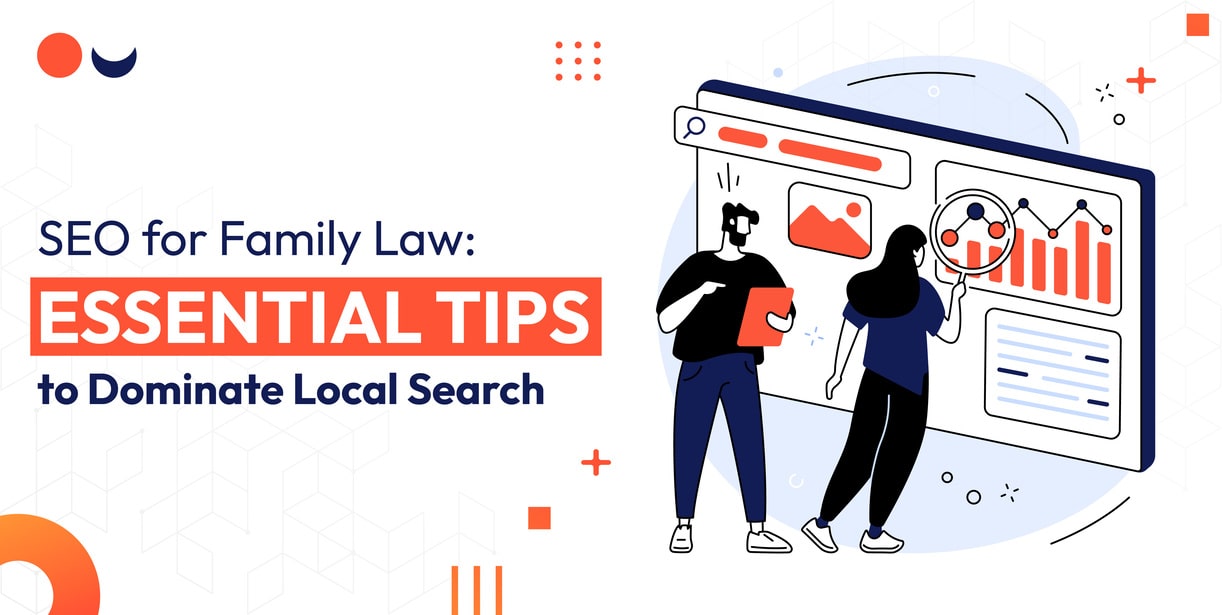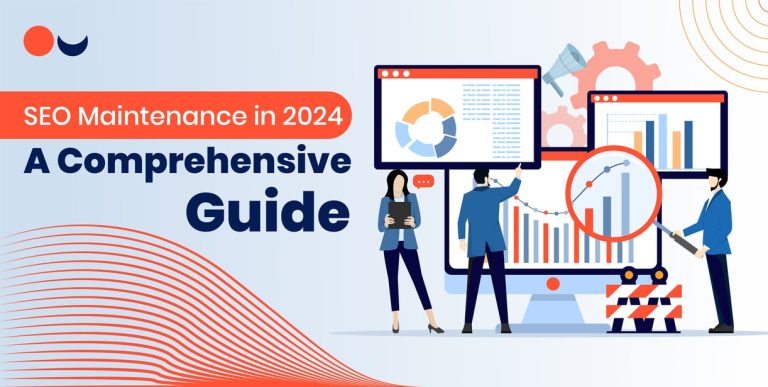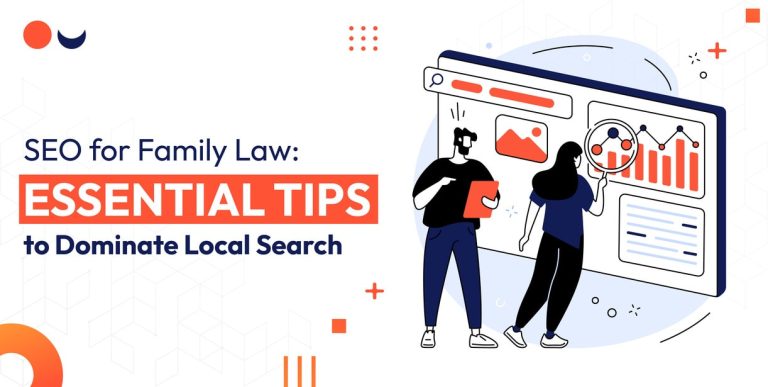Mastering local search engine optimization (SEO) is paramount for firms aiming to expand their reach and attract clients in their local area effectively. Family law SEO services are specifically tailored to enhance visibility in location-based searches, ensuring that your firm appears prominently in search engine results when potential clients seek legal services nearby.
Achieving dominance in local search requires a strategic approach that blends technical expertise with a thorough understanding of local market dynamics. By optimizing your firm’s online presence, you can significantly increase your chances of being discovered by individuals seeking family law services such as divorce representation, child custody advice, or adoption assistance.
This comprehensive guide offers actionable tips and insights designed to empower family law firms in their local SEO efforts. From optimizing Google My Business listings and conducting local keyword research to leveraging content marketing and managing online reviews, each strategy is geared towards maximizing visibility and attracting qualified leads from your local community.
Understanding Local SEO – What is Local SEO?
Local SEO means making your online stuff better so that more nearby people find you when they search for things related to your business. These searches occur on Google and other search engines. By focusing on local SEO, businesses can ensure they appear in local search results, Google Maps, and localized content on their website. Key elements include:
- optimizing Google My Business profiles
- collecting local reviews
- creating locally relevant content
- building local citations.
Why is Local SEO Important for Family Law Firms?
For SEO services for law firms, local SEO is essential because potential clients typically seek legal services within their geographical area. By optimizing for local searches, SEO for family law firms can enhance their visibility to people looking for services like divorce, child custody, or adoption support in their vicinity. Appearing in local search results helps build trust and credibility, as clients prefer nearby firms for convenience and perceived reliability.
Effective local SEO can lead to higher website traffic, more phone inquiries, and increased client conversions. Moreover, a well-optimized Google My Business profile, complete with positive reviews, can significantly influence a potential client’s decision-making process. In a competitive field, local SEO ensures that a family law firm stands out and is easily accessible to those in need of its services.
Optimizing Your Law Firm Website for Local Search
Mobile-Friendly Design
A mobile-friendly design is essential for optimizing your website for local search. With a significant number of users relying on smartphones for local searches, a responsive design ensures that your site is accessible and functional on any device. This improves user experience and enhances your ranking on search engines, as Google prioritizes mobile-friendly sites. A streamlined, easy-to-navigate mobile site encourages visitors to stay longer, increasing the likelihood of conversion.
Localized Content
Creating localized content is another vital aspect of local SEO. This involves tailoring your website’s content to reflect the specific needs and interests of your local audience. Include references to local landmarks, events, and news, and use local keywords strategically throughout your site. Blog posts, case studies, and testimonials that highlight your involvement in the community can also boost your local relevance. Localized content helps search engines understand your business’s connection to the area, improving your chances of appearing in local search results.
Schema Markup
Schema markup is like a secret language for your website that helps search engines understand what your stuff is all about. When search engines get it, they can show off more cool stuff about your site when people look it up.
- Local Business Schema: Use schema markup on your website if you have a local business. It gives search engines like Google more info about your business, like where you’re located, your phone number, and when you’re open.
- Legal Service Schema: Use schema markup for legal services to highlight the specific family law services you offer.
Google My Business Optimization
Setting Up and Verifying Your Google My Business Listing
Setting up and verifying your Google My Business (GMB) listing is the first step in effective divorce attorney SEO. Begin by creating a GMB account and entering accurate business information, including your law firm’s name, address, phone number, and category. Ensure this information matches your website and other online listings to maintain consistency and avoid confusion.
Google will then prompt you to verify your listing, typically by sending a postcard with a verification code to your law office address. Verifying your GMB listing confirms your firm’s legitimacy and allows you to manage and update your profile. This ensures your practice appears in local search results and Google Maps, enhancing your online visibility and making it easier for potential clients to find you. This establishes a strong foundation for your divorce attorney SEO efforts, helping you attract more clients seeking family law services.
Optimizing Your Google My Business Profile for Family Law Practice
Once your GMB listing is verified, optimizing your profile is crucial for maximizing visibility in family lawyer marketing. Start by adding high-quality photos of your office, team, and services to make your profile visually appealing and trustworthy. Write a compelling business description that includes relevant keywords, highlighting what sets your family law firm apart.
Keep your business hours updated and use the special hours feature for holidays or events. Encourage satisfied family law clients to leave positive reviews and respond to them promptly to show engagement. Utilize the GMB posts feature to share updates, promotions, or blog posts, keeping your audience informed and engaged. Regularly updating your GMB profile ensures it remains relevant and attractive to potential clients searching for local family legal services.
Local Keywords and Content Strategy
Conducting Local Keyword Research
Conducting local keyword research is foundational for an effective family law attorney marketing strategy. Start by identifying keywords that prospective clients might use when searching for legal services in your area. Use tools like Google Keyword Planner, Moz, or Ahrefs to find keywords with high search volume and low competition.
Focus on long-tail keywords that include your city or region, such as family law attorney in [Your City] or divorce lawyer near me. Analyzing competitors’ keyword rankings can also provide insights into what works well locally. This approach ensures your family law firm websites are optimized to attract local clients actively seeking family law representation in your area.
Creating Localized Content
Creating localized content helps your family law content writer resonate with your target audience and improves your visibility in local search results. Tailor your website’s content to reflect local interests and issues. Include references to local landmarks, events, and laws specific to your area. Service pages should clearly outline your expertise and success in handling cases within the local context.
Use local keywords naturally within your content to enhance relevance. Incorporating client testimonials and case studies from local clients can also strengthen your connection to the community and build trust with potential clients. In this case, you can boost your local SEO efforts and establish your firm as a reliable choice for local clients seeking family law expertise.
Blogging for Local SEO
Blogging is a powerful tool for boosting family law marketing through a custom SEO strategy. Regularly publishing blog posts that address common local legal issues, provide updates on local laws, or offer tips related to family law can position your firm as a local authority. Use blog posts to answer frequently asked questions and solve common problems faced by your local audience.
Ensure each post includes local keywords and links to other relevant pages on your site. Promoting your blog posts on social media and local forums can further increase your reach and drive local traffic to your website. Regular, relevant blogging keeps your site fresh and helps maintain high search engine rankings. This will enable you to enhance your visibility and build credibility in your community, attracting more clients to your family law practice.
Building Local Citations and Backlinks
Importance of Citations
Citations are online mentions of your family lawyer marketing business’s name, address, and phone number (NAP) across various platforms, such as directories, social media, and review sites. Consistent and accurate citations are crucial for local SEO as they help search engines verify your family law firm’s legitimacy and relevance in a specific location.
Citations enhance your local search visibility, improve your ranking on search engine results pages (SERPs), and increase the likelihood of appearing in local map packs. Ensure that your NAP information is consistent across all listings to avoid confusion and maintain your credibility with search engines and potential clients.
Strategies for Building Local Backlinks
Building local backlinks involves acquiring links from other local websites, which can significantly boost your family attorney marketing efforts. Start by identifying reputable local directories and industry-specific listings where you can add your business. Reach out to local business organizations, such as chambers of commerce or professional associations, to get listed on their websites.
Collaborate with local bloggers, news outlets, or influencers to create content that includes backlinks to your site. Sponsoring local events or charities can also earn you backlinks from their websites. Additionally, writing guest posts for local blogs or industry sites can provide valuable backlinks for family attorneys while showcasing your expertise. Each backlink from a trusted local source drives targeted traffic to your website and signals to search engines that your business is an authoritative and relevant local entity.
Online Reviews and Reputation Management
Encouraging Positive Reviews
Encouraging positive online reviews is essential for building trust and credibility for your best family law websites. Start by providing excellent service and experiences to your clients, as satisfied clients are more likely to leave positive reviews. Promptly ask satisfied clients to leave a review on platforms like Google My Business, Yelp, Bing Places, or Facebook.
Make it easy for clients to leave reviews by providing direct links and clear instructions. Consider implementing an automated follow-up email or text message shortly after a successful case conclusion to request feedback and reviews. Displaying positive reviews prominently on your website and social media channels can also encourage others to leave feedback.
Responding to Reviews
Responding to reviews, both positive and negative, demonstrates your firm’s commitment to client satisfaction and professionalism in generating family law leads. Thank clients who leave positive reviews with a personalized message expressing gratitude for their feedback and business. Respond promptly to negative reviews with empathy and a willingness to address the issue.
Apologize for any shortcomings and offer to resolve the matter privately, demonstrating your dedication to client care. Even if you cannot resolve a negative situation completely, responding courteously and professionally can mitigate potential damage to your firm’s reputation. Engaging with reviews shows potential clients that you value feedback and are actively working to improve client experiences, enhancing your firm’s online reputation and trustworthiness.
Leveraging Social Media for Local Family Law SEO
Social Media Profiles of Family Law Attorneys and Local Listings
Creating and maintaining active social media profiles can significantly boost your family attorney marketing efforts. Start by optimizing your profiles on platforms like Facebook, Twitter, LinkedIn, and Instagram with accurate business information, including your name, address, phone number, and website URL.
Ensure consistency across all platforms to strengthen your online presence and credibility. Use local keywords in your bio and posts to attract local followers and enhance your visibility in local search results. Additionally, claim and optimize your profiles on local business directories and review sites to further establish your firm’s local authority. This comprehensive approach will help you reach more potential clients and solidify your presence in the local community as a trusted family law firm.
Engaging with the Local Community
Engaging with the local community through social media helps them build relationships and improve visibility for the best family law websites. Share content that is relevant to your local audience, such as updates on local laws, legal tips, and success stories from cases in your area. Encourage followers to interact with your posts by asking questions, hosting polls, or running local-themed contests. Respond promptly to comments and messages to foster positive interactions and demonstrate your firm’s commitment to client engagement.
Collaborate with other local businesses, organizations, and influencers on social media to expand your reach and increase your firm’s visibility within the community. By actively participating in the local conversation on social media, you can enhance your firm’s reputation, attract potential clients, and improve your rankings in local search engine results. With this approach, you can strengthen your online presence and establish your firm as a trusted authority in family law firm within your local community.
Monitoring and Analyzing Performance
Using Google Analytics
Google Analytics is a powerful tool for monitoring and analyzing the performance of off-page optimization for family law attorneys’ websites. By integrating Google Analytics into your site, you can track various metrics that assess the effectiveness of your local search engine optimization efforts.
Key metrics to monitor include:
- Website Traffic
- Sources of traffic (organic search engine results, social media, referrals)
- User engagement (bounce rate, session duration)
- Conversions (phone calls, form submissions)
Utilize the Acquisition section to understand how visitors find your site, focusing on organic search traffic to gauge the impact of your off-page optimization strategies. Behavior reports help to analyze which pages are most visited and how users navigate your site, providing insights into content effectiveness and user experience. Regularly reviewing these metrics allows you to refine your strategies, improve your site’s performance, and attract more clients to your family law practice.
Tracking Local SEO Metrics
Tracking specific local SEO metrics is essential to evaluate the success of your legal practice SEO efforts in attracting local clients. Monitor your Google My Business insights to review metrics such as search queries, views on Maps, and actions taken (website visits, calls, direction requests).
You can pay attention to your organic search results for targeted keywords using tools like Google Search Console, Moz, or SEMrush. Track the number and quality of local citations and backlinks for family lawyers to assess your authority and relevance in local searches. Monitor online reviews and sentiment to gauge client satisfaction and reputation management efforts. Regularly reviewing these metrics allows you to identify areas for improvement, refine your local SEO strategies, and ensure your legal practice SEO continues to attract and convert local clients effectively.
Advanced Local SEO Strategies
Voice Search Optimization
Voice search optimization is becoming increasingly important as more users rely on voice assistants like Siri, Google Assistant, and Alexa to find information related to family law advertising and local businesses. When you want to be found in voice searches, use everyday language and longer phrases that sound like how people talk when they ask questions. Anticipate and answer common questions your potential clients might ask related to family law in your local area.
Ensure your website content is structured to provide direct, concise answers to these queries. Additionally, optimize your Google My Business listing with complete and accurate information, as voice searches often pull data from these profiles. Emphasize local landmarks, nearby attractions, and popular local phrases to align with voice search patterns and improve your chances of appearing in voice search results. This proactive approach ensures your family law advertising efforts are well-positioned to capture traffic from voice searches, enhancing your online visibility and attracting potential clients effectively.
Local Link Building
Local link building involves acquiring backlinks from websites and sources within your geographical area, which can significantly enhance your local SEO efforts. Start by identifying local businesses, organizations, and influencers who may be willing to link to your website. Offer to collaborate on content, such as guest blog posts, interviews, or local event sponsorships, which can earn you valuable backlinks for family lawyers.
Participate in local community events, charity initiatives, or industry gatherings to network and establish relationships that may lead to link opportunities. Ensure your content is relevant and valuable to local audiences to encourage natural link-building. Local citations from authoritative local directories and review sites also contribute to your local link profile. Building a robust network of local backlinks not only boosts your local SEO rankings but also enhances your firm’s credibility and visibility within your community.
Conclusion
Grasping SEO family law practice means more than just boosting search rankings. It’s about enhancing visibility in your local community. Improve your website, optimize Google My Business, create local content, secure reputable local mentions and links, manage reviews well, and engage actively with your community to attract and retain clients.
Remember, SEO needs continual adjustment to stay competitive. By investing in local SEO and prioritizing client needs, your firm can establish credibility, attract more visitors, and foster lasting client relationships. Embrace these strategies, aim for excellence, and see your firm thrive in today’s digital landscape.
Frequently Asked Questions
Q1: Why is SEO important for family lawyers?
SEO (Search Engine Optimization) for family lawyers helps them increase their online visibility and attract potential clients. Many people search for legal services online, especially when dealing with sensitive family matters like divorce, child custody laws, or adoption. By optimizing their website and content for relevant keywords, SEO for family lawyers can appear higher in search engine results pages (SERPs).
This visibility generates more traffic to their website and also enhances credibility and trust among potential clients. SEO family law allows family lawyers to compete effectively in a competitive digital landscape, ensuring that their services are easily found by individuals seeking legal expertise in family law matters.
Q2: How do keywords impact SEO for family law?
Keywords play a significant role in SEO for family law because they are the terms that potential clients use when searching for legal services online. SEO for Family lawyers should target keywords that are relevant to their practice areas, such as divorce lawyer, child custody attorney, family law firm near me, etc.
By strategically incorporating these keywords into their website content, including service pages, blog posts, and meta tags, SEO for family lawyers can improve their website’s visibility in search engine results. Effective keyword research helps identify high-traffic keywords with manageable competition, allowing lawyers to attract targeted traffic and potential clients who are actively seeking their specific legal services.
Q3: Is more content necessary on my family law website?
While having quality content is essential for SEO, it’s more about relevance and usefulness rather than sheer volume. SEO for divorce attorneys’ websites should focus on creating informative and valuable content that addresses common legal concerns, answers frequently asked questions, and educates potential clients about their services and expertise.
Each piece of content should be well-written, optimized with relevant keywords, and tailored to address the needs and interests of the target audience. Regularly updating and adding new content can signal to search engines that the website is active and relevant, potentially improving SEO rankings over time. However, the emphasis should be on quality over quantity to effectively engage visitors and encourage them to contact the firm for legal assistance.
Q4: How much does lawyer SEO cost?
The cost of SEO family law can vary widely depending on factors such as the scope of services, the competitiveness of the legal market, the geographic location, and the experience of the SEO provider. Generally, SEO for family lawyers can range from a few hundred dollars per month for basic local SEO services to several thousand dollars per month for comprehensive SEO campaigns that include content creation, link building, technical SEO, and ongoing monitoring and optimization.
Some SEO agencies may also offer packages tailored specifically for law firms, which can include website audits, keyword research, content development, and performance reporting. SEO for Family lawyers need to consider their budget, goals, and the potential return on investment when choosing an SEO provider and determining the cost of SEO services.
Q5: Why Do Family Attorneys Need SEO?
Family attorneys need SEO to ensure their services are discoverable by potential clients who are searching online for legal assistance. With more people turning to search engines to find legal services, having a strong SEO strategy allows family attorneys to compete effectively in a digital marketplace.
SEO helps family attorneys increase their online visibility, attract targeted traffic to their websites, and ultimately convert visitors into clients. By optimizing their website, content, and online presence, search engine optimization for family law attorneys can build credibility, trust, and authority in their practice areas, making it easier for potential clients to choose them for their family law needs.
Q6: How can I boost my local SEO?
Boosting local SEO family law practice involves several key strategies:
- Optimize Google My Business: Ensure your Google My Business profile is complete and accurate with your business name, address, phone number (NAP), and category. Encourage clients to leave reviews and respond to them promptly.
- Local Keywords: Target local keywords (e.g., family lawyer in [Your City]) in your website content, meta tags, and Google My Business profile to improve local search visibility.
- Local Citations: Get listed in local directories, legal directories, and industry-specific listings. Ensure consistency of NAP information across all listings.
- Content Localization: Create content that addresses local legal issues, news, and events. Show your expertise in local family law matters.
- Backlinks from Local Sources: Build relationships with local businesses, organizations, and influencers to earn backlinks to your website.
- Mobile Optimization: Ensure your website is mobile-friendly, as many local searches are conducted on mobile devices.
- Community Engagement: Participate in local events, sponsorships, and charity initiatives. Engage with local community groups on social media and online forums.
Implementing these strategies consistently and monitoring your local SEO performance will help boost your visibility in local search results and attract more clients to your family law practice.







